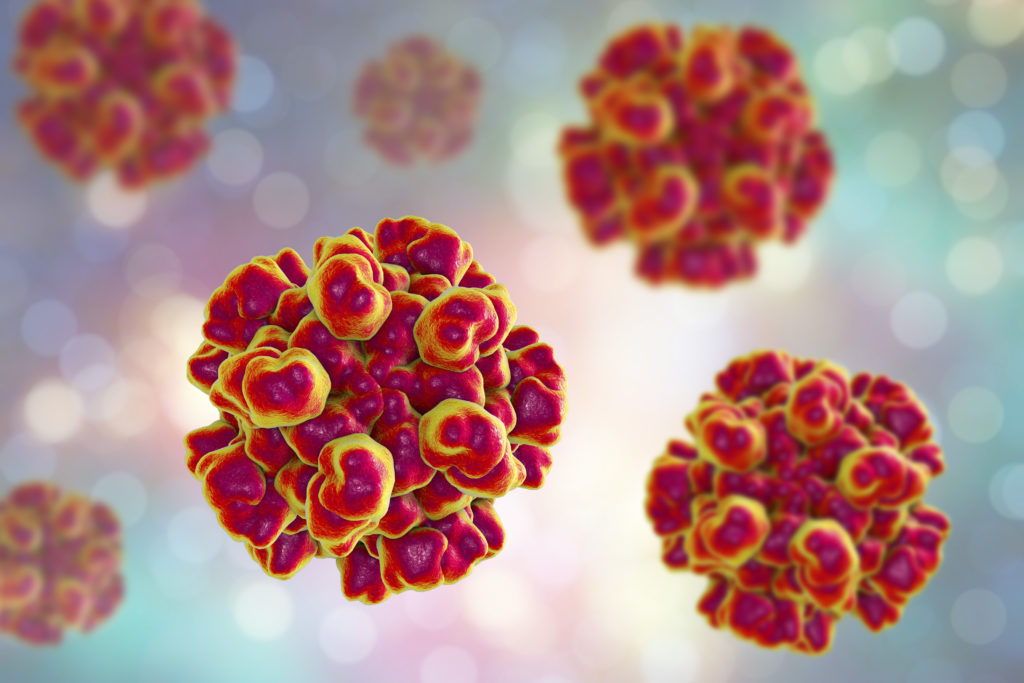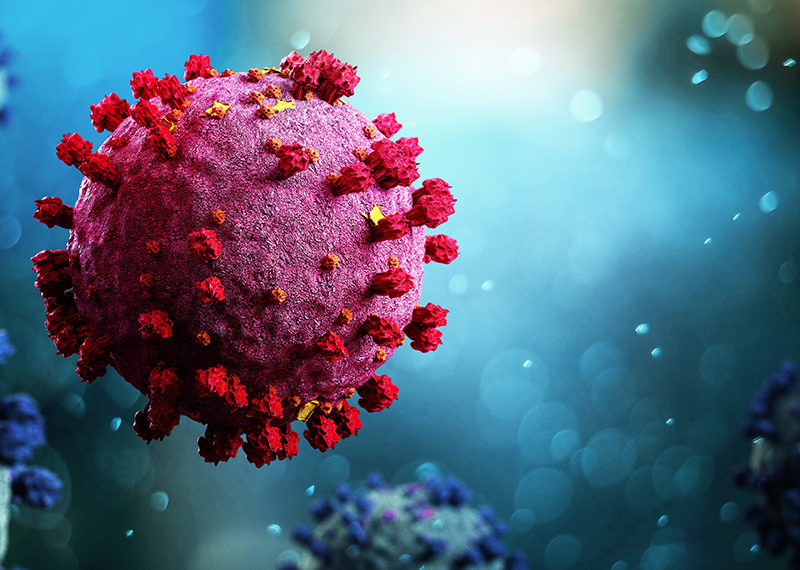Could Restoring CD4+ T Cell Immunity Help Control Hepatitis C Infection?
Could Restoring CD4+ T Cell Immunity Help Control Hepatitis C Infection? https://pediatricsnationwide.org/wp-content/uploads/2021/03/AdobeStock_197882380-1024x683.jpg 1024 683 Kevin Mayhood Kevin Mayhood https://secure.gravatar.com/avatar/bd57a8b155725b653da0c499ae1bf402?s=96&d=mm&r=g- January 27, 2020
- Kevin Mayhood

Following childbirth, some women with chronic infection experienced a recovery of HCV-specific CD4+ T cells and a reduction in viral replication.
In chronic hepatitis C (HCV) infections, CD4+ T cells that recognize the virus have been so hard to detect, some researchers thought they may be completely depleted.
But research led by investigators at Nationwide Children’s Hospital shows these helper T cells appear to at least temporarily recover in some women after they give birth.
And, during a CD4+ T cell recovery, the women temporarily had reduced viral replication, their study shows.
“Women who controlled the virus had readily detectable levels of CD4+ T cells targeting the virus,” says Jonathan Honegger, MD, a principal investigator in the Center for Vaccines and Immunity at Nationwide Children’s and senior author of the research. “The unique postpartum immune environment appears to allow these helper T cells to come back.
“These cells were functional, and they had markers of activation.”
The researchers are focusing on CD4+ helper T cells because studies show these cells play a central role in the ~25% of individuals who are able to spontaneously resolve acute HCV infections.
“We still don’t have a vaccine for HCV, so there remains critical need to understand immune factors that can control hepatitis C naturally to guide vaccine development,” says Dr. Honegger, who is also an assistant professor of Clinical Pediatrics at The Ohio State University College of Medicine.
The study, a companion study and commentary are published in The Journal of Clinical Investigation.
Dr. Honegger and colleagues analyzed the blood of 10 women whose viremia declined at least 10-fold between their third trimester of pregnancy and three months postpartum, and 22 women who did not experience a comparable decline.
They found significantly greater frequencies of circulating HCV-specific CD4+ T cells at three months postpartum in women with concurrent declines in viremia compared to women with stable viremia. The cells were an effector-memory phenotype.
The researchers also looked at molecules known to put the brakes on the immune system: CTLA-4 and PD-1. The CD4+ T cells of the women with the strongest viral control had the most PD-1 but the least CTLA-4. That suggests CTLA-4 is more important in stymying the CD4+ T cell immune response in this scenario, making the molecule a potential target for intervention, the investigators say.
The researchers ran some of their study experiments in the lab of Georg Lauer, MD, PhD, associate professor at Harvard Medical School, who led a companion study on non-pregnant patients with chronic HCV infection.
“He’s one of the leaders in the field who noted that CD4+ T cells are exceedingly rare or not detectable in humans with chronic infection,” Dr. Honegger says. “Our graduate student, Samantha Coss, took some of her samples to the Lauer lab for analysis. Working in his lab with his reagents… and seeing clear populations of HCV-specific CD4+ cells in several of the chronically infected women at postpartum timepoints, helped us feel more confident this wasn’t a spurious finding.”
Next, the research team plans to identify which subsets of the helper cells are reinvigorated during the postpartum period. They hope to use transcriptomics to look at the individual genes that are expressed to help the recovery. They will also try to uncover how the reinvigorated cells result in suppressed viral replication.
While the studies focus on HCV, Dr. Honegger believes the research may prove helpful more broadly.
“Defective helper T cell immunity is a common theme in other persistent viral infections, as well as numerous cancers,” he says. “Lessons learned from the natural restoration of immunity to HCV after childbirth could be applicable to these other conditions.”
References
- Cross SL, Torres-Cornejo A, Prasad MR, Moore-Clingenpeel M, Grakoui Am Lauer GM, Walker CM, Honegger JR. CD4+ T cell restoration and control of hepatitis C virus replication after childbirth. The Journal of Clinical Investigation. 2020 Jan 6. pii: 123623.
- Chen DY, Wolski D, Aneja J, Matsubara L, Robilotti B, Hauck G, de Sousa PSF, Subidhi S. Fernandes CA, Hoogeveen RC, Kim AY, Lewis-Ximenez L, Lauer GM. Hepatitis C virus specific CD4+ T cell phenotype and function in different infection outcomes. The Journal of Clinical Investigation. 2020 Jan 6. pii: 126277.
- Binder B, Thimme R. CD4+ T cell responses in human viral infection. The Journal of Clinical Investigation. 2020 Jan 6. pii: 133222.
Photo credit: Adobe Stock
About the author
-
Kevin Mayhoodhttps://pediatricsnationwide.org/author/kevin-mayhood/
-
Kevin Mayhoodhttps://pediatricsnationwide.org/author/kevin-mayhood/April 25, 2015
-
Kevin Mayhoodhttps://pediatricsnationwide.org/author/kevin-mayhood/April 25, 2015
-
Kevin Mayhoodhttps://pediatricsnationwide.org/author/kevin-mayhood/April 25, 2015






